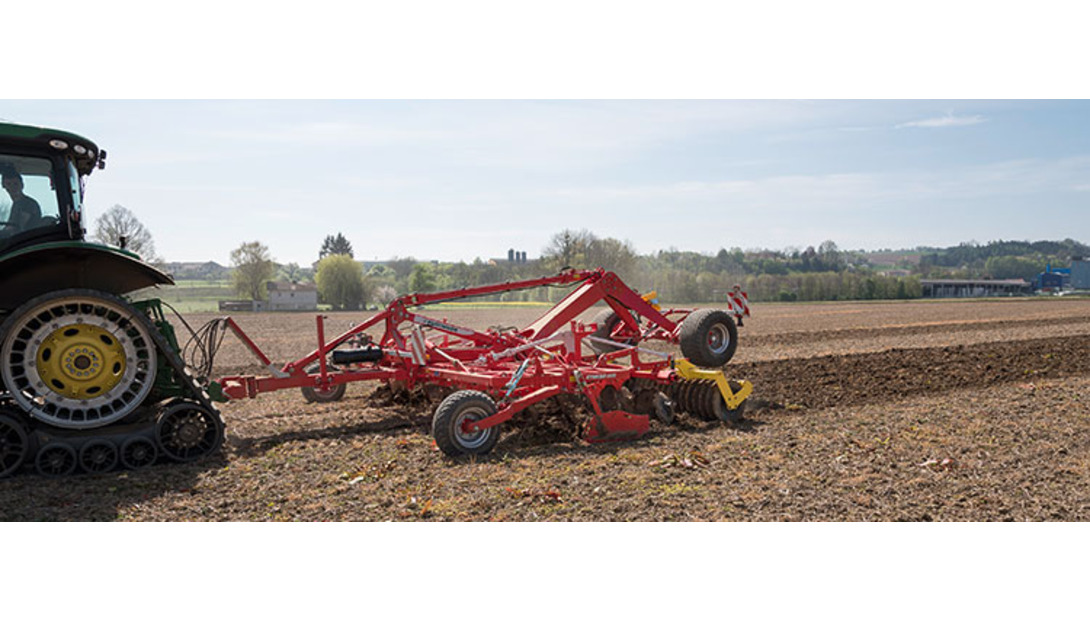This item has been supplied by a forage marketer and has not been edited, verified or endorsed by Hay & Forage Grower. 
 Many regions of Europe were subjected to very low temperatures this winter, meaning that cover crops and winter crops were well wilted from the frost. The right seedbed preparation is key to obtaining a good soil structure and supporting soil life: the incorporation of frost-wilted organic material should be as shallow as possible so instead of the material being buried, it can offer sufficient erosion protection.
Many regions of Europe were subjected to very low temperatures this winter, meaning that cover crops and winter crops were well wilted from the frost. The right seedbed preparation is key to obtaining a good soil structure and supporting soil life: the incorporation of frost-wilted organic material should be as shallow as possible so instead of the material being buried, it can offer sufficient erosion protection. TERRADISC - the specialist in shallow soil preparation
TERRADISC - the specialist in shallow soil preparation

The first step in spring planting is seedbed preparation: cover crop residues need to be incorporated into the soil. Breaking up the soil and mixing in the crop is performed by a stubble cultivator or disc harrow - both are Pöttinger specialities.

SYNKRO 6030 T
Pöttinger offers a range of machinery especially designed for shallow soil preparation - such as the TERRADISC compact disc harrow and SYNKRO stubble cultivator - to ensure perfect seedbed preparation.

TERRADISC 6001 T
- Shallow incorporation of cover crops to conserve the soil
- Soil structure and soil life are retained
- Sufficient mulch is left on the surface to ensure erosion protection is provided
- Cost-effective and sustainable tillage.

